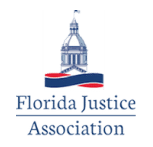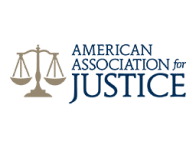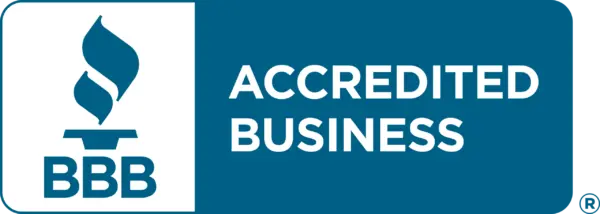In the medical malpractice setting, vicarious liability allows hospitals and medical facilities to be held liable for the negligence of the medical professionals they employ.
What Is Vicarious Liability?
Vicarious liability is a legal principle under which one party is legally responsible for the actions of another. The most common application is to hold employers liable for the actions of their employees performed within the scope of their employment. For instance, if a medical employee causes an accident while performing their job duties, their employer, such as the hospital or medical clinic, can be held accountable.
How Does Vicarious Liability Apply in Florida?
In Florida, vicarious liability developed from the common law principle of respondeat superior.
Respondeat Superior
Vicarious liability is rooted in the respondeat superior doctrine, a Latin term meaning “let the superior, or chief, answer.” Under this doctrine, employers may be responsible for their employees’ negligent or otherwise wrongful acts within the employment scope.
Florida law incentivizes businesses to supervise and train their employees by holding employers accountable. This legal framework allows victims to seek compensation from employers, who often have more resources than individual employees.
Key Factors in Determining Employer Liability
Florida courts consider several key factors when determining employer liability under vicarious liability. These factors also apply in the medical malpractice setting.
Scope of Employment
The actions must occur within the boundaries of the employee’s job duties. If an employee performs a task that benefits the employer or is part of their regular duties, the employer can be held liable. For instance, if a pharmacist fills the wrong prescription for a patient, this would typically fall within the scope of employment.
Control and Supervision
The employer’s degree of control over the employee’s actions is significant. If the employer directs and supervises the employee’s tasks, the employer is more likely to be held liable. Factors that may establish control and supervision include providing tools, setting work hours, and the authority to hire and fire.
Deviation From Employer's Instructions
If an employee deviates from their employer’s instructions or policies, the employer might not be liable. This defense to vicarious liability, known as frolic and detour, exempts an employer from liability when the employee is acting outside of the scope of the employment duties or working for the benefit of someone other than the employer.
Nature of the Relationship
The distinction between an employee and an independent contractor is crucial. Employers are generally not liable for the actions of independent contractors because they do not exercise the same level of control over them. However, there are exceptions, such as if the work performed is inherently dangerous or if the employer was negligent in hiring the contractor.
Example of Vicarious Liability
Vicarious liability can arise in everyday scenarios. An example of vicarious liability in health care would be hospitals. Hospitals can be held liable for the negligence of the medical professionals they employ, such as nurses and technicians. If a nurse administers the wrong medication, the hospital might be held responsible for the resulting harm in a medical malpractice claim. However, most doctors are independent contractors affiliated with the hospital, meaning vicarious liability does not apply.
Why Does Vicarious Liability Exist?
Vicarious liability exists to maintain accountability and fairness in relationships, particularly employment contracts. It protects the public and encourages responsible behavior among employers. Understanding the public policy reasons behind vicarious liability helps clarify its importance in maintaining a balanced and just legal system.
Promotes Accountability
One primary reason for vicarious liability is to promote accountability. By holding employers liable for the actions of their employees, the law prevents businesses and institutions from shirking responsibility for misconduct within the scope of employment. This accountability incentivizes employers to implement proper training, supervision, and operational procedures to minimize the risk of harm caused by their employees’ actions.
Provides Fair Compensation
Another crucial reason behind vicarious liability is to provide fair compensation for victims. When an employee’s actions cause harm, the employer typically has more financial resources and insurance coverage to compensate the victim. This principle helps victims recover appropriate compensation when the employee lacks appropriate resources. By allowing victims to seek employer redress, vicarious liability provides a more effective avenue to justice.
Encourages Preventative Measures
Vicarious liability also encourages employers to take preventative measures to reduce the risk of harm. Because they could be held liable for their employees’ actions, employers are more likely to invest in safety programs, comprehensive training, and regular oversight. These measures protect the public and create a safer and more effective workplace.
Reflects the Nature of Employment Relationships
The legal doctrine of respondeat superior reflects the inherent nature of employment relationships. Employers have control over their employees’ work and benefit from their labor. As such, it is fair and just for employers to bear the consequences of their employees’ actions within their employment scope.
Contact FHVG Florida Attorney for Cases Involving Vicarious Employer Liability
Vicarious liability can hold employers responsible for the negligent actions of their employees. However, there are limitations. An experienced Florida medical malpractice or personal injury lawyer can answer your questions and provide the legal guidance you need.
At Freedland Harwin Valori Gander, we have the experience and dedication to help you with complex issues of vicarious liability to identify all the parties responsible for your injury and pursue the maximum compensation. With over $2.6 billion recovered for our deserving clients, our firm has extensive experience going up against large corporations and insurance companies to win record-setting settlements.
Call us at (954) 467-6400 or contact us online to get started on your case with a free consultation.











